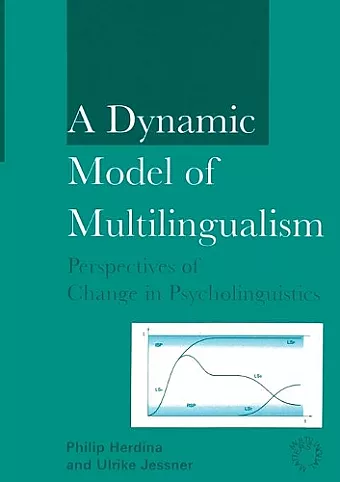A Dynamic Model of Multilingualism
Perspectives of Change in Psycholinguistics
Ulrike Jessner author Philip Herdina author
Format:Paperback
Publisher:Channel View Publications Ltd
Published:16th Jan '02
Currently unavailable, and unfortunately no date known when it will be back

The model presented in this volume draws together various strands of research – second language acquisition theory, bilingualism research, dynamic systems theory – to develop a novel approach to this challenging subject. Its main focus lies on the psycholinguistic dynamics of multilingualism, the processes of change in time affecting two or more language systems.
This book sets out with the highly ambitious aim of combining two fields of investigation which are not self-evidently relatable - namely, on the one hand, research into dynamic systems and, on the other, research into multilingualism. It seeks to use notions of dynamic systems as they have been applied in such areas as physics and meteorology as the basis for the development of a dynamic model of multilingualism. The writing is clear and the argumentation cogent throughout, and although the text is certainly not an easy read, its insightfulness fully repays the close attention it demands. There is absolutely no doubt that this volume will quickly become - and will deserve to become - an indispensable reference-point in any discussion of multilingualism.
-- David Singleton, Associate Professor of Applied Linguistics, Trinity College, Dublin, Ireland.The authors take up the courage to break with conventional language acquisition theory and provide a new, dynamic view of language processing where language maintenance and language loss are seen as determining factors in multilingual competence. The novelty and special value of the book is that it pioneers the way to learning more about the differences between bilingualism and trilingualism. This is an innovative book with a detailed description of a new approach offered in multilingualism studies. The book is well written, logically structured and is a useful piece of work for scholars ready for new waves in research and eager to explore and understand as much as possible about multilingualism.
-- Judit Navracsics * International Journal of Multilingualism Vol 3, No 1 2006 *Multilingual education represents the future and this volume will certainly help the reader understand it better. I strongly believe it will be widely cited in future.
-- David Lasagabaster * Language Awareness Vol 11 No 3 *A Dynamic Model of Multilingualism is an innovative, challenging and stimulating book about multilingual development... It will provide an invaluable conception and metaphor that can assist in reinterpreting research findings, recognising their limitations and placing them in relation to other variables and within the broad context of dynamic multilingualism. I recommend the book to researchers, advance graduate students, educators and language planners interested in psychological issues of multilingualism and second language acquisition as well as language maintenance and loss.
-- Peter Ecke * Applied Linguistics Vol 24 No 1, 2003. *I strongly recommend this stimulating monograph to anyone working on bi-/multilingualism or second/third language acquisition.
-- Michael Clyne * International Journal of Bilingualism Vol. 7 No 1, 2003 *There is no doubt that Herdina and Jessner’s Dynamic Model of Multilingualism provides a significant and welcome contribution to theoretical development in language acquisition and multilingualism. This volume deserves a close reading and should become a reference in discussions of multilingualism.
-- Guillaume Gentil * Linguistlist 14-2780 *I found the book very stimulating, introducing an approach and a model which have the prospect of setting a new course towards a better understanding of language acquisition in general and multilingualism in particular. The most significant contribution of the book, it appears to me, is that it attempts to provide a theoretical basis for multilingualism in its own right, independently of any monolingual norms.
-- Masayo Yamamoto * Language & Intercultural Communication Vol 3 No 2. *The DMM does offer a new and intriguing metaphor for applied linguistic research. It adopts the kind of holistic approach needed to describe the extreme complexity of diachronic and synchronic variation in language systems.
-- Jean-Marc Dewaele * International Journal of Bilingual Education & Bilingualism Vol 6 No 5, 2003 *“… the book is certainly worth reading”.
-- Elizabeth Hiser * New Zealand Studies in Applied Linguistics Vol 10 (1) 20ISBN: 9781853594670
Dimensions: 210mm x 148mm x 10mm
Weight: 256g
192 pages